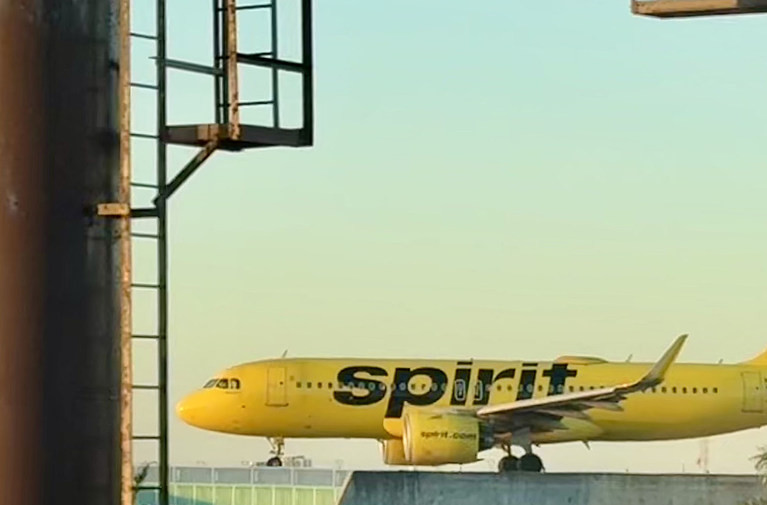Spirit Airlines’ General Counsel Secures $1.1 Million Retention Bonus Amid Second Bankruptcy in 2025
A Lifeline for Leadership in Turbulent Times
Spirit Airlines, the U.S.’s largest ultra-low-cost carrier, filed for Chapter 11 bankruptcy protection for the second time in less than a year on August 29, 2025, grappling with dwindling cash reserves and mounting losses. Amid this financial storm, General Counsel Thomas Canfield received a $1.1 million retention bonus to stay on board, a move approved on the same day the airline entered bankruptcy court, highlighting efforts to retain key leadership during a critical restructuring.
Details of the Retention Bonus and Bankruptcy
The Retention Award
According to reports from Law.com, Canfield was one of four Spirit executives awarded retention bonuses on August 29, 2025, totaling millions to ensure stability in leadership. The $1.1 million bonus aims to discourage Canfield from leaving as Spirit navigates its second Chapter 11 filing in under a year. This follows a pattern in corporate restructurings, where key personnel are incentivized to steer companies through financial distress.
Spirit’s Second Bankruptcy
Spirit’s latest Chapter 11 filing, in the U.S. Bankruptcy Court for the Southern District of New York, comes just months after exiting its first bankruptcy in March 2025. The airline’s struggles include:
- Financial Strain: A $246 million net loss in Q2 2025, with operating expenses (118% of revenue) outpacing income, per Reuters. Total debt ranges between $1 billion and $10 billion.
- Operational Challenges: Maintenance issues with 38 Pratt & Whitney-powered Airbus planes, weak domestic leisure travel demand, and excess capacity have crippled profitability.
- Failed Reorganization: The first bankruptcy, which reduced $795 million in debt through equity swaps, avoided aggressive cost-cutting like fleet reduction or route restructuring, leaving Spirit vulnerable.
- External Pressures: Trump’s tariffs and budget cuts have softened U.S. travel spending, further squeezing fares, with Spirit’s average fare per passenger down 19% in the first half of 2025.
Spirit’s legal counsel, Marshall S. Huebner of Davis Polk, emphasized at a first-day hearing that this filing adopts a “fundamentally different approach,” leveraging Chapter 11 tools to cancel costly contracts, retire dozens of aircraft, and sell 19 planes, potentially saving hundreds of millions in maintenance liabilities.
Why the Bonus Matters
Retaining Expertise
Canfield’s role as General Counsel is pivotal during bankruptcy, overseeing legal strategy, creditor negotiations, and compliance with court mandates. His retention bonus reflects Spirit’s need for experienced leadership to navigate complex restructuring, especially after the first bankruptcy’s limited success. “This is really Spirit’s first Chapter 11 and not its second,” Huebner argued, underscoring the need for continuity to execute a more aggressive overhaul.
Industry Context
Retention bonuses are common in Chapter 11 cases to prevent brain drain, as seen in other airline bankruptcies like American Airlines’ in 2011. The $1.1 million award, while substantial, aligns with industry norms for executives managing high-stakes restructurings, especially given Spirit’s $1.02 billion Q2 revenue drop (20% year-over-year).
Impact on U.S. Stakeholders
For Employees and Unions
The bankruptcy has sparked concern among Spirit’s 12,800 employees. The Association of Flight Attendants-CWA warned of a “harder” process than the 2024 filing, with hundreds of flight attendants on voluntary leave and 270 pilots facing furloughs. Canfield’s bonus, while aimed at stability, may fuel tensions with unions advocating for worker protections, as noted in CNBC reports.
For Consumers
Spirit has assured customers that flights, tickets, and loyalty points remain unaffected, emphasizing, “Virtually every major U.S. airline has used these tools to improve their businesses.” However, reduced routes and fleet cuts could limit travel options for budget-conscious consumers, especially in leisure markets where Spirit dominates. Posts on X reflect mixed sentiment, with some praising Spirit’s resilience and others criticizing executive bonuses amid worker furloughs.
Economic Implications
Spirit’s restructuring could stabilize the ultra-low-cost carrier sector, but failure risks ripple effects. Aircraft lessors like AerCap are already exploring options to reallocate Spirit’s 200 Airbus planes, potentially benefiting rivals like Frontier Airlines, which announced 20 new routes targeting Spirit’s customers. A successful restructuring could preserve jobs and competition, but a shift to Chapter 7 liquidation—estimated at a 75% risk by Boston Warwick—could disrupt travel and raise fares.
Expert and Public Reactions
Legal experts, like bankruptcy attorney Brett Miller of Willkie Farr & Gallagher, argue Spirit’s first bankruptcy “didn’t use the tools available” for structural fixes, making Canfield’s role critical in this more aggressive filing. On X, users like @AviationInsider call the bonus “a necessary evil” to retain talent, while @TravelWatchdog questions its optics given pilot furloughs and customer uncertainty.
Future Outlook
Spirit aims to emerge from bankruptcy leaner, with a smaller fleet and optimized routes, but success hinges on addressing operational and market challenges. Canfield’s leadership will be tested in negotiations with lessors, creditors, and regulators. If the restructuring fails, a Chapter 7 liquidation could dismantle Spirit, impacting employees, travelers, and the budget airline market. For now, the $1.1 million bonus underscores Spirit’s bet on experienced leadership to navigate this high-stakes process.
Conclusion
Spirit Airlines’ decision to award General Counsel Thomas Canfield a $1.1 million retention bonus amid its second bankruptcy filing in 2025 reflects the airline’s urgent need for stability in a turbulent market. While the bonus aims to secure Canfield’s expertise for a complex restructuring, it raises questions about priorities as employees face furloughs and consumers brace for potential service cuts. As Spirit fights for survival, the outcome will shape the future of budget travel in the U.S., with Canfield’s role at the forefront.
